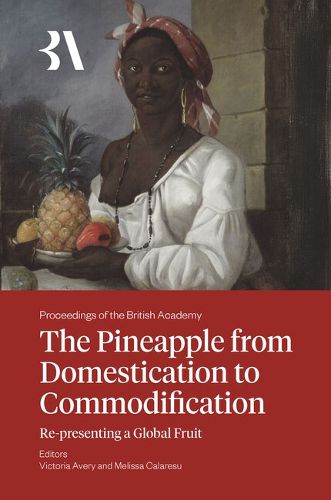Readings Newsletter
Become a Readings Member to make your shopping experience even easier.
Sign in or sign up for free!
You’re not far away from qualifying for FREE standard shipping within Australia
You’ve qualified for FREE standard shipping within Australia
The cart is loading…






The pineapple's 'discovery' by European colonisers in the late fifteenth century and its remarkable global trajectory - from an early modern object of rarity, desire, and horticultural innovation to a cheap, canned consumable and fair-trade logo today - is a story of modern globalisation. The Pineapple from Domestication to Commodification is a wide-ranging, interdisciplinary volume intended to provoke timely debate and generate radical rethinking of an overly familiar fruit with associations from luxury to kitsch. It deliberately problematizes the pineapple by investigating understudied tensions between its representational power and the historical and political contexts of its worldwide production and consumption. This connects the global and local at the heart of contemporary debates about the nature and origins of our food. It will have cross-disciplinary appeal for scholars of politics, economics, history, plant sciences, food, and material culture as well as for broader audiences interested in food, gardening, the environment, and visual arts.
$9.00 standard shipping within Australia
FREE standard shipping within Australia for orders over $100.00
Express & International shipping calculated at checkout
The pineapple's 'discovery' by European colonisers in the late fifteenth century and its remarkable global trajectory - from an early modern object of rarity, desire, and horticultural innovation to a cheap, canned consumable and fair-trade logo today - is a story of modern globalisation. The Pineapple from Domestication to Commodification is a wide-ranging, interdisciplinary volume intended to provoke timely debate and generate radical rethinking of an overly familiar fruit with associations from luxury to kitsch. It deliberately problematizes the pineapple by investigating understudied tensions between its representational power and the historical and political contexts of its worldwide production and consumption. This connects the global and local at the heart of contemporary debates about the nature and origins of our food. It will have cross-disciplinary appeal for scholars of politics, economics, history, plant sciences, food, and material culture as well as for broader audiences interested in food, gardening, the environment, and visual arts.